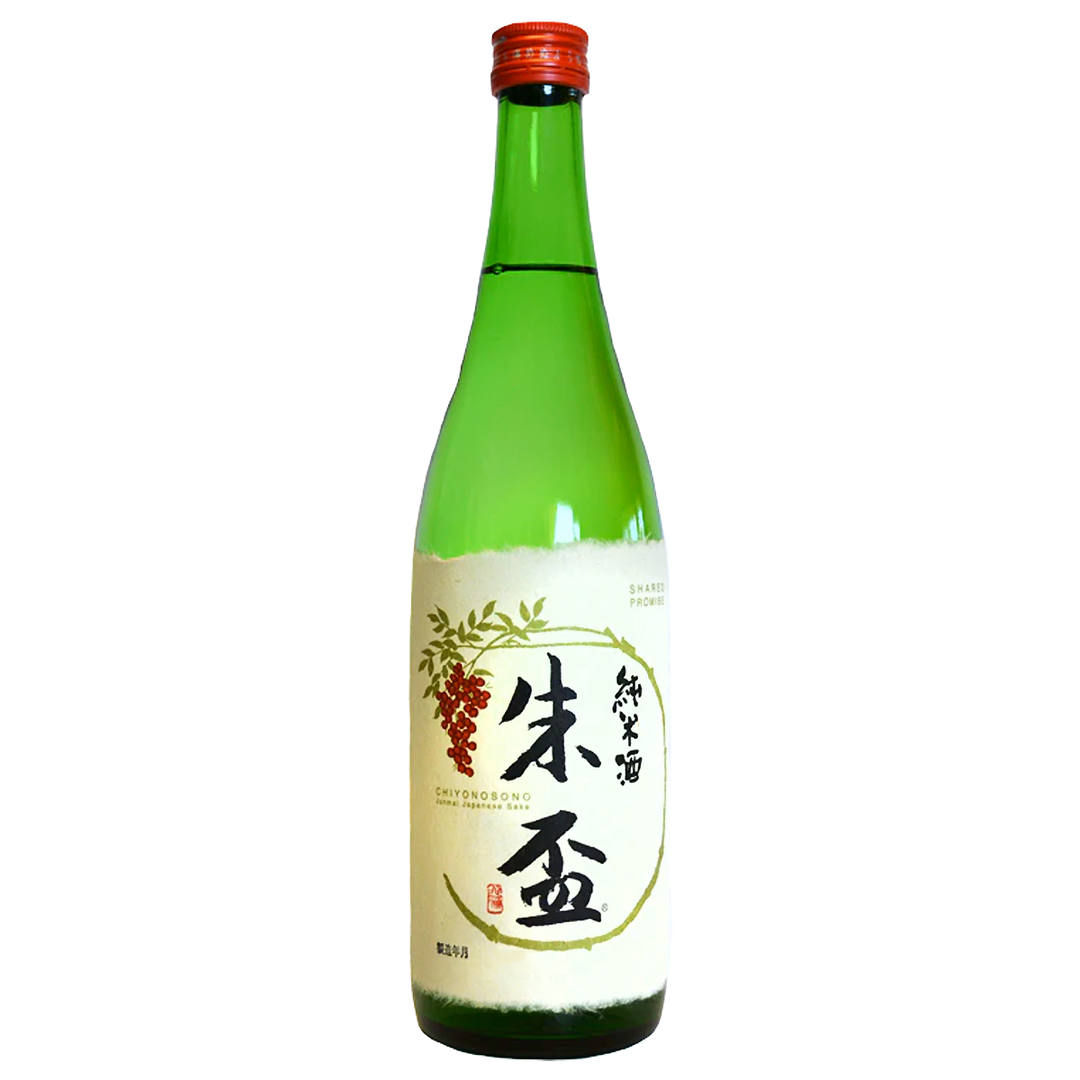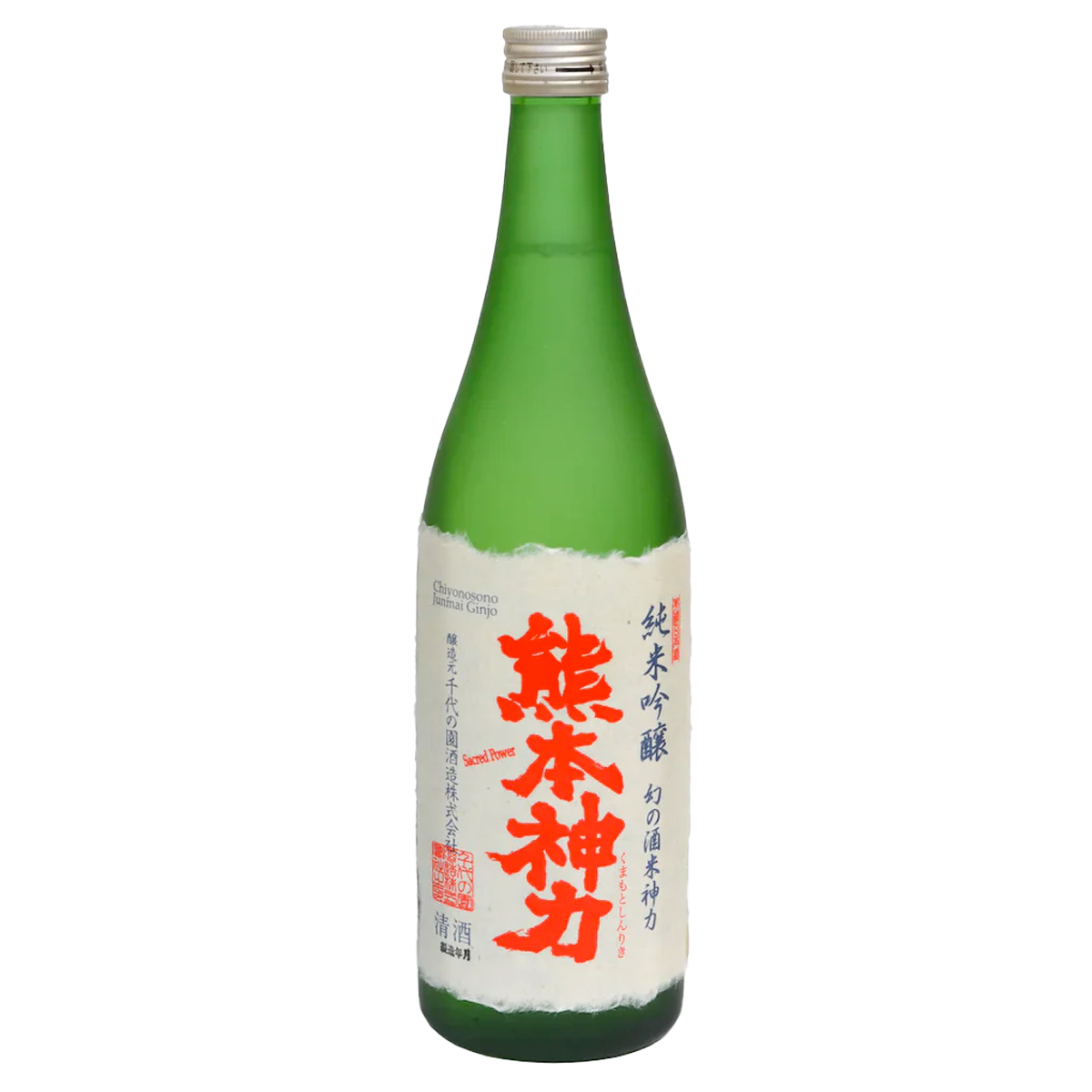
Chiyonosono Junmai "Shared Promise"
- Low stock - 1 item left
Velvety and comforting, ricey with floral top notes, like its famous sibling "Sacred Power." In the Kumamoto style, Shared promise is a bit weightier, softly textured, full of life, but finishing on the dry side. Still, this is clearly a southern-style brew. It has a saison-like spice and malty hoppy quality. Something remotely beer-like about it and actually goes down really nice after a chisai biru starter.
Brewery: Chiyonosono
Japanese name: 千代の園酒造
Established: 1896
Prefecture: Kumamoto
Rice: Yamadanishiki, Hananishiki (local)
Polish: 65%
Starter method: Sokujo
Yeast: Kumamoto (strain of #9)
SMV: +3.5
Brewery website: https://www.chiyonosono.co.jp/
(According to the importer, the sake long ago was made with Gohyakumangoku but is now made with Yamadanishiki for the koji and Hananishiki for the kakemai.)
Kumamoto is really shochu (distillate) country and the brewery also makes shochu, of course. But the roots of the Honda family are as prominent rice wholesalers and that really governs their approach to production as well as their commitments. In 1896, the family started a sake brewery to add value to their rice and because during this period the Meiji government was offering strong incentives to begin sake production (sake tax was funding modernization and wars after all). It was around this time that the original owner Honda Kikuhachi also directed rice breeding trials which led to the development of Kyushu Shinriki, a sake brewing rice with high starch content.
During WW2 there were extreme rice shortages. There was more potatoes than rice eaten during this time— so getting rice to make sake with was very difficult. As a result all brewers were required to make sanzoshu, highly diluted sake— only about a third of the liquid was the original sake. The rest was added alcohol, water, and artificial flavorings, sweeteners. After the war, when brewers once again regained access to rice most people had forgotten about junmai (pure rice sake) and believed it was stupid or uneconomical to resume junmai production. But Chiyonosono believed it was a worthwhile effort to make: they were committed to the integrity and purity of rice and its products.
In 1968, Chiyonosono went on record as one of the first breweries to produce Junmai (at around this time, 1967 in Saitama and 1964 in Kyoto, other early adopters were also making moves). At Chiyonosono, the brewery workers made a pact: sharing sake from a red ritual sake cup, a shuhai, to continue working to improve the quality of sake in Japan. Thus the Junmai brand was named “shuhai” (English translation, ”shared promise”) in honor of this pact. As a former rice wholesaler and junmai specialist, Chiyonosono specializes in rice cultivation and their unique access to heirloom strains and brews lets them design sake with distinctive rice textures and aromas.
The brewery is located on the southernmost island of Kyushu—the gateway into Japan—known for Asian and European cuisine, historic architecture, and distinct regional culture. The future 5th generation president and daughter of the current brewery president, Yuri Honda, is already making a name for herself as an innovator in the sake community and is primed to continue pushing the brewery toward forward-thinking yet approachable sake.
During her visit to Sunflower, Ms. Honda was asked about her experience being a woman and being expected to take over the brewery in a male-dominated industry. Her feeling is that because it’s so unusual being a woman she is used to things being unusual, her fresh set of eyes is very individual, and this gives her an advantage in a changing market. She’s less likey to just go with the flow and accept things as they are. In turn she gets less pushback when making changes because her mere presence is already different.
What is there to say about a delicious $27 junmai? It tastes lovely, goes down easy, and is a natural pair for the specialties of kumamoto: tonkotsu ramen, kumamoto oysters (the big ones...grown much larger than ours!), and karashi renkon, a deep-fried, miso- mustard-stuffed lotus root sliced for snacking with sake. At home, I love it with alfredo.



